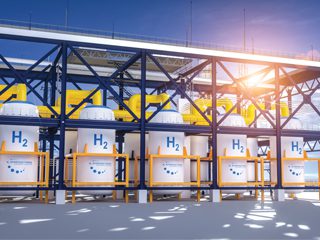Algeria-Germany: Signing of A Joint Declaration
of Intent on Cooperation in the Field of Hydrogen
Algeria and Germany have recently signed, a joint declaration of intent establishing a bilateral task force on hydrogen recently, with a view to strengthening and supporting investments in all the economic sectors (private and public), concerned by the development of hydrogen in the two countries.
The declaration signed by the two ministries plans to strengthen joint cooperation in the field of feasibility studies, production, processing, employment, transportation, storage and marketing of hydrogen, as well as its derivatives produced from renewable energies, beneficial to both countries, especially since the two parties plan to create an Algerian-German Task Force on hydrogen within the framework of the energy partnership, with a view to contributing to the creation of economic opportunities, while promoting the achievement of the goals of the Paris Climate Agreement (year 2015).
Energy sustainability and climate change are major issues in present era, and hydrogen, a clean and adaptable energy source, has drawn a lot of interest as a potential solution for specific situations, e.g. Transportation. The effectiveness of hydrogen production systems depends critically on materials, which also affect system durability, catalyst performance, and reaction kinetics. It will take sustained progress in materials science and engineering to realise large-scale, sustainable hydrogen production systems.
Hydrogen has potential as a medium for storing energy. The effective and secure storage and release of hydrogen for a range of applications is made possible by advancements in materials for hydrogen storage, such as metal hydrides, chemical hydrides, and porous materials. Ensuring the materials’ long-term stability and endurance under harsh operating conditions is one of the major issues in the field of hydrogen production. High temperatures, corrosive surroundings, and cycling between reducing and oxidising atmospheres are all part of many hydrogen production processes, which over time can deteriorate materials. Investigating novel materials and coatings with enhanced mechanical strength, thermal stability, and corrosion resistance have been the main focus of research to date. Furthermore, enhanced characterization approaches and expedited testing protocols have been utilised to assess and forecast material deterioration mechanisms, permitting the development of stronger materials for hydrogen generation.
Source: https://embmoscow.mfa.gov.dz/

Hydrogen Renewable Energy Production – Hydrogen Gas for Clean Electricity Solar and Wind Turbine Facility.




